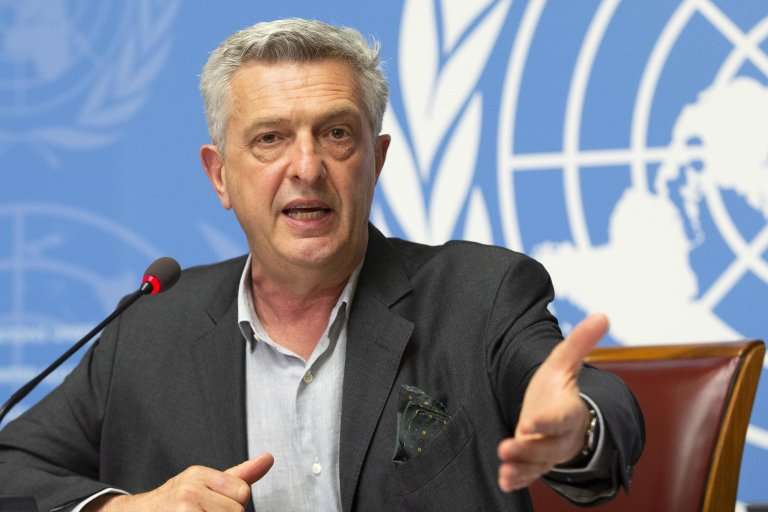The United Nations’ refugee chief issued a warning on Thursday, March 7 regarding the plight of over 780,000 displaced people in Mozambique.
Most have been affected due to a seven-year insurgency by a jihadi group, causing widespread chaos in the northern part of the country.
Filippo Grandi, the UN’s high commissioner for refugees, announced this during his visit to Mozambique’s northern Cabo Delgado province.
In this region, an Islamic State-affiliated group has been conducting attacks on communities since 2017, leading to the displacement of approximately 1.3 million people who fled their homes to escape violence, including killings and beheadings.
Although about 600,000 individuals have returned home, they face the daunting task of rebuilding their lives in communities that have been devastated.
Houses, markets, churches, schools, and health facilities have been destroyed, presenting significant challenges for those attempting to resume normalcy.
Grandi’s visit came amid an increase in new attacks by the Islamic State Mozambique group in Cabo Delgado since January 2024 following a period of relative calm in 2023.

These recent attacks led to the displacement of 80,000 individuals, adding to the already staggering number of people forced to leave their homes and villages in Mozambique.
According to the UN, the total number of displaced individuals now surpasses three-quarters of a million.
Other humanitarian organizations suggest that the actual number of people fleeing violence in the north since January could be closer to 100,000, highlighting the severity of the situation.
According to the UN, of the displaced population in Mozambique, approximately 700,000 people are affected by the violence in Cabo Delgado. The remaining 80,000 are located in the central Sofala province, which continues to grapple with the aftermath of Cyclone Idai in 2019.
Grandi made a call for “sustained involvement by the international community” to help Mozambique, with the UN’s humanitarian plan in the southern African country facing a funding gap.
Robert Piper, the special adviser on internally displaced people to UN Secretary-General António Guterres, announced that the UN requires $400 million to aid people in Mozambique this year.
However, the organization had only received pledges of just 5% of the necessary funding, leaving a significant shortfall.
“We are not starting from zero … but clearly more resources are needed,” said Piper, who accompanied Grandi on the visit to Cabo Delgado.
Challenges And International Responses
Moreover, given the escalating violence, several countries, including Angola, Botswana, member states of the European Union, Rwanda, South Africa, and the United States, have sent soldiers, equipment, and military advisers to Mozambique to assist government forces in combating the insurgency.
This combined effort helped regain control over certain areas in Cabo Delgado.
Cabo Delgado is rich in natural resources, including gas, rubies, graphite, and gold. However, profits from these resources were disproportionately benefiting an elite group within the ruling party, Frelimo, while local job creation remained limited.
The coastal zone, historically Muslim, became a focal point for discontent. Some local fundamentalist preachers advocated for Sharia law as a means to achieve equality and fair wealth distribution.
The conflict has drawn the attention of global powers. The US for instance labeled the insurgents as Isis-Mozambique and “global terrorists,” although this characterization was contested by researchers.
The US has expressed interest in countering ISIS in Mozambique. Additionally, Mozambique was named one of the countries under the Global Fragility Act, signaling increased US involvement.
Despite efforts to contain the insurgency, the humanitarian crisis in northern Mozambique remains severe, with hundreds of thousands displaced and ongoing instability.
READ ALSO: Rwanda: The ADF Commits $12 million to the Rapid operationalization of APTF




















